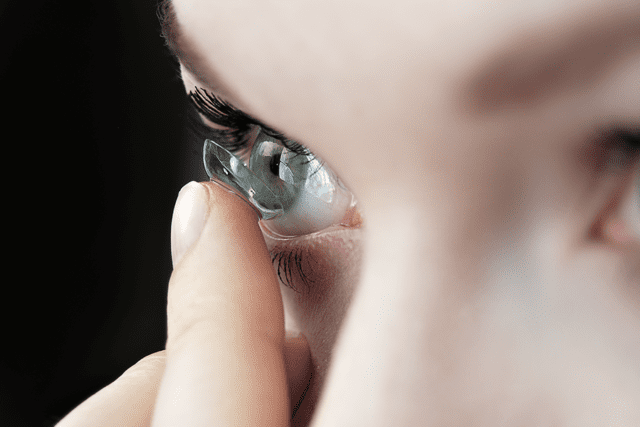Periodontal Disease and Pregnancy
Several studies have shown a relationship between pregnant mothers with periodontal disease (gum disease) and preterm, low-birth-weight babies. Some results have shown that pregnant women with more serious types of periodontal disease may be seven times more likely to have a baby that is preterm and/or of low birth weight.
The association between periodontal disease and these adverse pregnancy outcomes has been demonstrated in repeated studies, but other studies have not shown that treating periodontal disease during pregnancy reduces the occurrence of these outcomes.
Why did the dental treatment not improve the birth outcomes? One possible reason is that by the time the pregnant women started periodontal treatment it was too late to provide any benefit. To reduce adverse birth outcomes, women need to be in good oral health prior to becoming pregnant. The second possible reason is that only women with the most serious forms of periodontal disease might benefit from treatment during pregnancy. Additional studies need to be done to determine why no benefit was achieved.
The bottom line from these studies is that periodontal treatment is safe during pregnancy and results in better overall oral health. There was no danger to the mother or the developing baby from the dental treatment. Also, women that are pregnant or planning to become pregnant should see their dentist early to evaluate the health of gums and teeth and to provide early treatment of periodontal disease.
Pregnancy also causes increases in estrogen and progesterone levels. The increase in these hormones can be partly responsible for a condition called “pregnancy gingivitis.” More than half of pregnant women experience this condition, which results in swelling, tenderness and redness of the gums, bleeding when brushing or flossing, and if left untreated can lead to periodontal disease.
Fortunately, pregnancy gingivitis can be easily prevented and treated. Prevention requires persistent attention to oral hygiene, including brushing with fluoride toothpaste at least twice a day, flossing, and the use of an anti-plaque or antimicrobial mouth rinse, especially after bouts of morning sickness. Pregnant women should maintain a nutritional diet with adequate levels of vitamin C and B12.
If you suspect you may have gingivitis, see your dentist for a thorough examination and cleaning. Your dentist will recommend the most appropriate ways for you to maintain good oral health throughout your pregnancy.
A relatively rare gum condition occurring in about 5% of pregnancies is the formation of a red growth or nodule on the gums that is prone to bleeding when irritated by eating or brushing. This nodule, commonly called a “pregnancy tumor,” is clinically known as a pyogenic granuloma and is not actually a tumor, but rather a harmless overgrowth of inflamed gum tissue. The cause for these growths is unknown, but they occur more frequently in pregnant women during the second or third trimester. They usually shrink and disappear soon after delivery, but if the tumor causes discomfort or problems with chewing or brushing your dentist can often surgically remove it.
If you think you have a pregnancy tumor, see your dentist. S/he will recommend the most appropriate treatment and ways for you to maintain good oral health throughout your pregnancy.
Keeping your teeth and gums healthy during pregnancy is important for both mother and baby. You should brush a minimum of two times a day with fluoride toothpaste, floss to clean between your teeth, and use anti-plaque or antimicrobial mouth rinses. Stay away from high-sugar snack foods and beverages, and follow your physician’s advice on diet and nutrition.
It’s important to see a dentist either before pregnancy or early in your pregnancy. Your dentist will give your teeth a thorough cleaning, provide advice and recommendations for you and your baby, and may recommend more frequent cleanings during your pregnancy to help you keep your teeth and gums healthy.
Related stories
-
Considering Contact Lenses? Don’t Be Shy.
If you have any questions about contact lenses, your eye doctor can help. He or she should … Read More
-
Dangerous TikTok trends: DIY teeth whitening
In today’s digital world, it’s easy to fall into the trap of trusting everything you see online. … Read More
-
Celebrate World Oral Health Day
Every year on March 20, more than 100 countries unite for World Oral Health Day to celebrate … Read More
Sign Up Now
Most Liked
- 1 Do Expiration Dates on Dental Products Matter? 305 Likes
- 2 Is Activated Charcoal Safe for your Smile? 166 Likes
- 3 Crazy and Cool Fish Teeth Facts 91 Likes
- 4 Delta Dental Protects Your Eyes with DeltaVision® Coverage 70 Likes
- 5 The In-between Tooth: Guide to Bicuspids 53 Likes
- 6 Recipe: Quick Pumpkin Pudding 49 Likes
- 7 Bad Taste After Brushing? Common Explanations 44 Likes
- 8 People with Dental Benefits are Healthier 39 Likes
- 9 Own Your Oral Health: Subscribe now for tips to ensure a bright smile 38 Likes
- 10 Signs of diabetic eye problems 36 Likes




